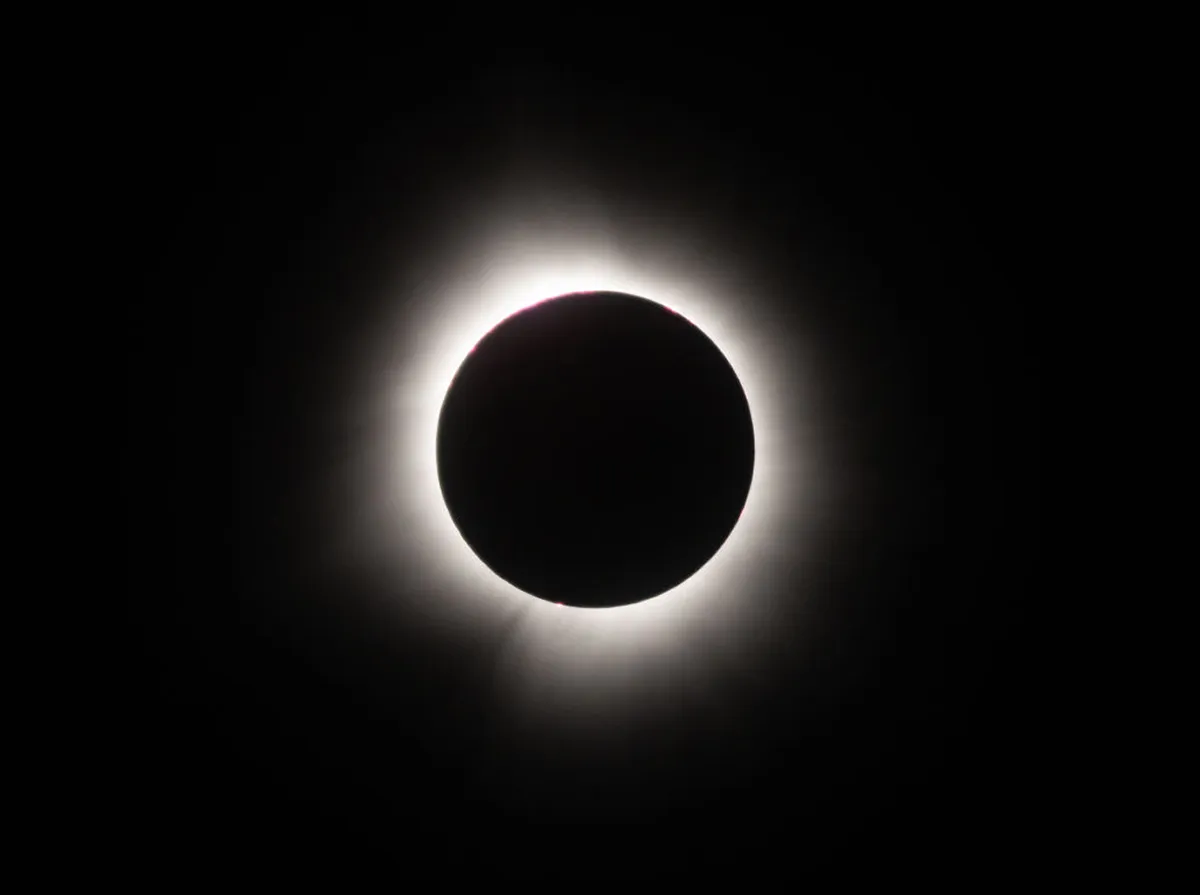Have you ever seen a black Moon rise in the sky?
The answer to this question must be a resounding 'no', whoever and wherever you are, because so-called 'black Moons' can't be seen with the human eye.
There's a black Moon rising this Saturday, 23 August 2025, and in this guide we'll go through what a black Moon is, why they're impossible to see, but what you can see in the night sky instead.
Get Moon phases and timings in your email inbox every week by signing up to our e-newsletter.
New Moon vs full Moon

A black Moon is another name for a rare kind of 'new Moon'.
New Moon is one of the Moon's monthly phases, and is effectively the opposite of a full Moon.
During full Moon, Earth is between the Sun and the Moon, so sunlight illuminates the whole of the Earth-facing side of the Moon, making the Moon appear big and bright.
During new Moon, the Moon is between the Sun and Earth, so the whole of the Earth-facing side of the Moon is in darkness.
At this point, the Moon cannot be seen with the naked eye.
That's except for those rare occasions when the Sun, the Moon and Earth line up exactly, and we get to see the Moon pass in front of the Sun, causing a solar eclipse.
In fact, a total solar eclipse might be the only time the Moon could ever be said to be black, because it's visible as a silhouette blocking out the Sun.
But in terms of the definition, a 'black Moon' is simply a very specific kind of new Moon that only occurs every so often.
Let's delve into exactly what this means.
Definition of a black Moon

You may have heard of a blue Moon before, which is the name given to an extra full Moon and, incidentally, nothing to do with its actual colour!
You may also be aware that there are two definitions of a blue Moon.
The first, more commonly-used definition of a blue Moon is a second full Moon in a calendar month.
But the astronomical definition of a blue Moon is the third blue Moon in an astronomical season that has four full Moons.
An astronomical season is defined as the period between an equinox and a solstice, or a solstice and an equinox.
During an astronomical season, there are normally three full Moons. A blue Moon is a third full Moon in an astronomical season that has four full Moons.
A black Moon is the same as a blue Moon, but relates to new Moons, not full Moons.
And, once again, it has nothing to do with the colour of the Moon: a black Moon isn't really black.
A monthly black Moon is the second new Moon in a month, while a seasonal black Moon is the third new Moon in an astronomical season of four new Moons.

The August 2025 black Moon
At 06:06 UTC (02:06 EDT) on 23 August 2025, the Moon will become a so-called 'black Moon'
This is not a monthly black Moon. The next one of those will occur on 31 August 2027.
The 23 August 2025 black Moon is a seasonal black Moon.
That's because the current astronomical season began with the June solstice 20/21 June 2025, and ends with the September equinox on 22 September 2025.
There are four new Moons within this season: 25 June, 24 July, 23 August and 21 September.
That's why the 23 August 2025 new Moon is a seasonal black Moon.
Observing the black Moon

Black Moons, as we've said, cannot be seen by the human eye, because they're a new Moon, i.e. located between the Sun and Earth, and therefore swallowed by the Sun's glare.
But a new Moon is a great time for stargazing, because the Moon's bright glare is out of the way, meaning more faint celestial objects are easier to see.
It's a great time to get out and observe deep-sky objects with binoculars or a telescope, for example.
You can find out what to see with binoculars by reading our monthly binocular stargazing guide.
Or find out which constellations to explore for deep-sky objects in our guide to the best constellations, season by season.
You could also try to observe or photograph the late summer Milky Way.
Saturn, Neptune and Uranus are currently visible in the sky after midnight, making the time around new Moon a good time to observe them with your telescope.
Find out more about this in our guide to observing the planets in August.
So while a black Moon isn't really anything to get truly excited about, a weekend new Moon is a great opportunity to stay up late and enjoy the great observing conditions that come with a Moon-free sky.
Share your astronomy observations and images with us by emailing contactus@skyatnightmagazine.com


